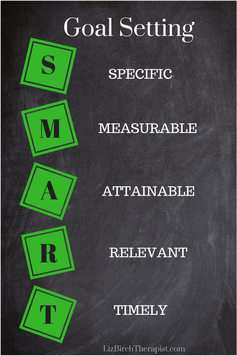 What is your inner child telling you? Do you want everyone to cater to your needs? Do you find yourself disappointed a lot? Do you have a lot of fear... anxiety? The idea of having an inner child may be foreign to most people. But all of us have a part of us that's still us as a child. It's possible that our inner child never fully grew up or may not be fully healed from pain in the past. Think about your current life and all the emotions and behaviors that you don't like and are continually trying to change. These emotions and behaviors come from our experiences from when we were small children. From birth to about 6 or 7 years old, our brain functions at a relatively slow pace, which is a very "receptive" brainwave state. At this time we are profoundly affected by our life experiences. Our beliefs about ourselves and others are formed during this time based on our life's experiences. As small children we will have been absorbing a great deal from our extended families, our caregiver(s), friends, religious institutions, etc. Our experiences may have been filled with love and support or they may have been filled with neglect and abuse. Our subconscious takes in all this information and holds on to it for the rest of our lives. We cannot change the script. The life we experienced happened, whether good or bad, it happened. And that script, how our brain processes our events, is designed to keep us safe. Hence, anxiety to keep us on the lookout for danger (as an example). All of our life experiences have been "logged" into our sub-conscious minds and bodies. This all creates the pool in which we float, or sink. Inevitably, the water will be a bit dirty - or it may even be like thick mud. In this pool is our self-esteem, body-image, family trauma, shame and secrets (even if not spoken about). We sink down into this pool, or mud, whenever we are overwhelmed by our negative thoughts, emotions, self-doubt or self-loathing. In therapy the aim is to sensitively lift out this dirt/mud, bit by bit, until we are left with just a stain of what was once there. In therapy you can learn how to meet, rescue and “adopt” this wounded child who still lives deep inside you. This process of meeting, rescuing and adopting your wounded child is an amazing process. Any why you? Because you are the only person who you can guarantee never to leave you! Signs that your Inner Child may be wounded: low self-esteem, poor body-image, mood and emotional imbalances, problems with boundaries being too rigid or too weak, problems with eating, harming yourself, being a rebel/ a hoarder/ a bully/ a perennial victim or a super-achiever, intimacy problems, commitment problems, a general lack of trust in yourself and others, criminal behavior, excessive lying, just to name a few. If you are in Orange County, California and interested in working on your Inner Child please feel free to reach out to me. We can begin with a free 15-minute consultation and go from there. Or you can reach out to any therapist in your area and ask if they do Inner Child work. I wish you all the best! I am a licensed Marriage & Family Therapist who can provide services with anyone who resides in the State of California. I have also been trained in Clinical Hypnotherapy which is beneficial for more specific goals.
Liz Birch, LMFT, CHt ~ 714-584-6047 ~ [email protected]
0 Comments
 Let me begin by saying Hypnotherapy is not a type of therapy in itself. However, it is a great aid to Cognitive Behavioral Therapy. Cognitive Behavioral Hypnotherapy, which combines hypnosis with cognitive-behavioral therapy, helps change unwanted patterns and behaviors by connecting with the subconscious mind. It helps with psychotherapy because the hypnotic state allows a person to explore more painful thoughts and feelings that may be hidden from the conscious mind. The positive suggestions that people are given while hypnotized are referred to as “post hypnotic suggestions” because they are intended to take effect after the person emerges from the deep relaxation or trance and is no longer under hypnosis. Experts say that hypnotherapy can help the "stuck" thought patterns that go along with depression, anxiety, OCD, and other mood disorders. The fact is, however, that hypnosis is a genuine psychological phenomenon that has valid uses in clinical practice. Simply put, hypnosis is a state of highly focused attention or concentration, often associated with relaxation, and heightened suggestibility. While under hypnosis, it seems many people are much more open to helpful suggestions than they usually are. "Hypnosis works and the empirical support is unequivocal in that regard. It really does help people," says Michael Yapko, PhD, a psychologist and fellow of the American Society of Clinical Hypnosis. Hypnosis has been used for centuries for pain control, including during the Civil War when Army surgeons hypnotized injured soldiers before amputations. Recent studies have confirmed its effectiveness as a tool to reduce pain. Among the leading researchers in the field is Guy H. Montgomery, PhD, a psychologist who has conducted extensive research on hypnosis and pain management at Mount Sinai School of Medicine, where he is director of the Integrative Behavioral Medicine Program. In a 2009 article in Health Psychology (Vol. 28, No. 3), Montgomery and colleagues reported on a study, which found that a combination of hypnosis and cognitive-behavioral therapy could reduce fatigue for breast cancer patients undergoing radiation therapy. Hypnotherapy is a safe procedure when done by a trained therapist. Hypnotherapy is not mind control or brainwashing. Hypnotherapy is specifically designed to fit your needs. This means that each hypnotherapy session is designed for just you and allows for a very individualized approach. The reason that hypnotherapy can be so effective is because it is so person centered. If you have tried other treatments and not seen results, you should give hypnotherapy a try due to the fact that it is so person centered. Check with your insurance company to see if they specifically cover hypnotherapy.
 Many of us have great intentions of reaching our goals. We may tell ourselves; "I'm going to work out more, I'm going to increase my sales this month, I'm going to work on home improvements this week, or I'm going to begin drinking less alcohol". All of those are great goals, however, it's too easy to not reach any of those goals if we phrase them as I wrote them. In order to be more successful in your goals you must get much more specific than the examples I listed above. A great system to use is the SMART goal setting system. SMART goal setting brings structure and traceability into your goals and objectives. SMART goals create clear milestones and an estimation of the goal's attainability. What does S.M.A.R.T. goal setting stand for? S = Specific
Being a therapist, I use this SMART system with many of my clients. I help them get very specific on what they want to accomplish in therapy. This may take a few sessions to figure out but it's important to clarify the goal. To have someone say, "I want to feel better about myself" is good, but it will be too difficult to know when my client will be there. So I dig a little deeper and ask my client, "What does that look like to you?" After some exploring my client may say, "Instead of crying 4 days a week, I want to work on only crying 2 days a week". That's very specific and attainable. We work on that goal and after a month or so we revisit the goal. Is the client crying less? How many days a week are they crying now?" Once they've reached crying only 2 days a week we set our next goal. How about crying only 2 times a month? Again a specific goal. This system works well when working on communication issues in relationships. A couple may argue every single day. So our measurable goal may be that they argue only 4 days a week. Of course, we don't want arguing at all, but is that realistic? Attainable? We set goals that we can be successful with. Once that goal is reached of only arguing 4 days a week we set a new goal of only arguing two days a week, and so forth. During the sessions, while working on goals, the therapist is exploring with the client what got them in their predicament. What changes need to be made and how can some of their problems be resolved. It's all a work in progress all striving for those specific, measurable, attainable, relevant, and timely goals. Why don't you think about a goal or two you'd like to reach? Then apply the SMART goal setting approach and see if that makes reaching your goals a bit more successful. I bet you'll be pleased with your results. If you are in my area and need help reaching your goals, please feel free to reach out to me and together we can work this system. It may take just a few sessions to get you set up and going. You can then check back a month or so later and we can explore how you are doing. My hope is for everyone to be successful in their goals, no matter how small or large. I am a licensed Marriage & Family Therapist who can provide services with anyone who resides in the State of California. I have also been trained in Clinical Hypnotherapy which is beneficial for more specific goals. Liz Birch, LMFT, CHt ~ 714-584-6047 ~ [email protected] https://en.wikipedia.org/wiki/SMART_criteria
 Alexithymia is a clinical term for the inability to understand the intricacies of feelings and emotions. The existence and study of alexithymic experiences started in the 1970's. Some research suggests that alexithymia is more predominant in men than in women and is prevalent in approximately 10% of the general population. Alexithymia is also understood to have two components; a cognitive component where people might face challenges with thinking and emotions while trying to name, understand and talk about feelings, as well as an affective component where people might struggle with the experience of sharing, responding to and sensing emotions. People who experience the effects of alexithymia might have these symptoms: 1. Difficulty identifying feelings 2. Difficulty distinguishing between feelings and the bodily sensations 3. A lack of impulse control 4. Violent or disruptive outbursts 5. Difficulty describing feelings to other people 6. Heightened sensitivity to sights, sounds, or physical touch 7.Limited imagination and, therefore, little or no fantasies and limited dreams 8. An unawareness of what is happening in their own mind and a very concrete way of thinking. Alexithymia is known to be co-morbid with a number of psychiatric conditions. Therefore, when signs of Alexithymia are seen one might also look at depression, post traumatic stress disorder, brain injuries, substance abuse, and eating disorders, as it’s these diagnoses that one might harbor alexithymia. But where does it come from? How does one end up with this personality construct of marked dysfunction in emotional awareness, social attachment and interpersonal relating? Some research has indicated that events happening in a person’s early childhood such as neglect or abuse but there are also cases of witnessing a horrifying event is known to trigger alexithymia. If you, or someone you know, is displaying symptoms such as those described above please seek out the support of a licensed therapist. Therapy will often concentrate on building a foundation of naming emotions and appreciating a range of feelings. The process will likely include both consideration of the experiences of other people and self-reflection. For people who have no problem with emotional comprehension this might sound very basic, however, for a person with alexithymia the process of growing their emotional intelligence and capacity may be difficult. I am a licensed Marriage & Family Therapist who can provide services with anyone who resides in the State of California. I have also been trained in Clinical Hypnotherapy which is beneficial for more specific goals. Liz Birch, LMFT, CHt ~ 714-584-6047 ~ [email protected] Weiss, Thomas C. , Alexithymia: Information, Symptoms & Treatment Options, August 2012, Disabled World/heath/neurology/alexithymia  You had an amazing passionate relationship with your spouse. Sex was beautiful, often, and intense. It was a safe place. It was when you felt the most intimate and close that you can feel with anyone. You both had thoughtful, deep and ultimately the best conversations. You embraced the closeness you both felt in those moments after.… when you are coming down from the highest of highs. Those moments of laying together are etched in your memory. I hope each military couple out there still has the same intensity as when they first met, were dating, or after their marriage. Don’t we all wish that passion was still there? I’m guessing for most military couples who have endured multiple deployments that is not the case. The spouse who has been waiting and taking care of the home and children has been anticipating their veteran’s return. The void of sex is almost painful. But she/he knows when their partner finally arrives it will be filled with that passion and intimacy that they have longed for over the past several months. Unfortunately, in most cases that is not the reality. I work with many veterans and military families and I hear a lot of the same story. Sex is not the same. They want the passion. They want it all to be just as it was before and when it’s not the frustration begins, for both. Each time they try and that fulfillment isn’t there both partners feel a sense of loss. They both work so hard at getting it back. The incentive is there but the same feelings aren’t occurring. The returning veteran is feeling the effects of war - some of which are probably nightmares, startle responses, paranoia, fear, being on edge, depression and anger. Some veterans have physical effects such as burns, scars and loss of limbs. Each veteran has their own set of emotional and physical changes due to combat. Any one of those can have a profound affect of the sexual relationship. For the partner who’s been at home waiting for these passionate moments please try to understand what your veteran has been through and the symptoms of PTSD, TBI, and what just plain war creates. For the veteran, please try not to be disappointed in yourself. Let me assure you, you are not the only veteran experiencing this. You may not be sharing your sex life, or lack of it, with your buddies but I know the same frustrations are occurring in most. Let me offer some suggestions;
Combat takes a toll on all relationships. I hope the above guidelines and suggestions are helpful. Please try to understand you are not alone, either of you, in the struggle to rekindle your sexual relationship. It is not a sign of weakness to seek out help and support but rather a sign of strength in wanting to work on improving your relationship. I commend you for all you have given and wish you peace. I am a licensed Marriage & Family Therapist who can provide services with anyone who resides in the State of California. I have also been trained in Clinical Hypnotherapy which is beneficial for more specific goals. Liz Birch, LMFT, CHt ~ 714-584-6047 ~ [email protected]  Over the past few years I’ve become accustomed to utilizing phone apps to help my clients get through some tough times. It’s not a replacement for me, their therapist, but they do help when my clients needs some "on the spot" aid. I thought I’d list a few that I use and ones that my clients have shared with me that they find helpful. If any of you have other apps that aid in calming, supporting, encouraging or do some crisis management until personal help is available I’d like to hear about them. Here are my top five that I’m able to access via my iphone.
Again none of the above mentioned apps are a replacement for in-person help but many of my clients have shared that they have been extremely helpful to them. Please list your favorite self help apps (and maybe some pros and cons) in the comment section below. It's great to learn what works, and doesn't, from others. I am a licensed Marriage & Family Therapist who can provide services with anyone who resides in the State of California. I have also been trained in Clinical Hypnotherapy which is beneficial for more specific goals. Liz Birch, LMFT, CHt ~ 714-584-6047 ~ [email protected] *photo courtesy of freedigitalphotos.net |
|

 RSS Feed
RSS Feed